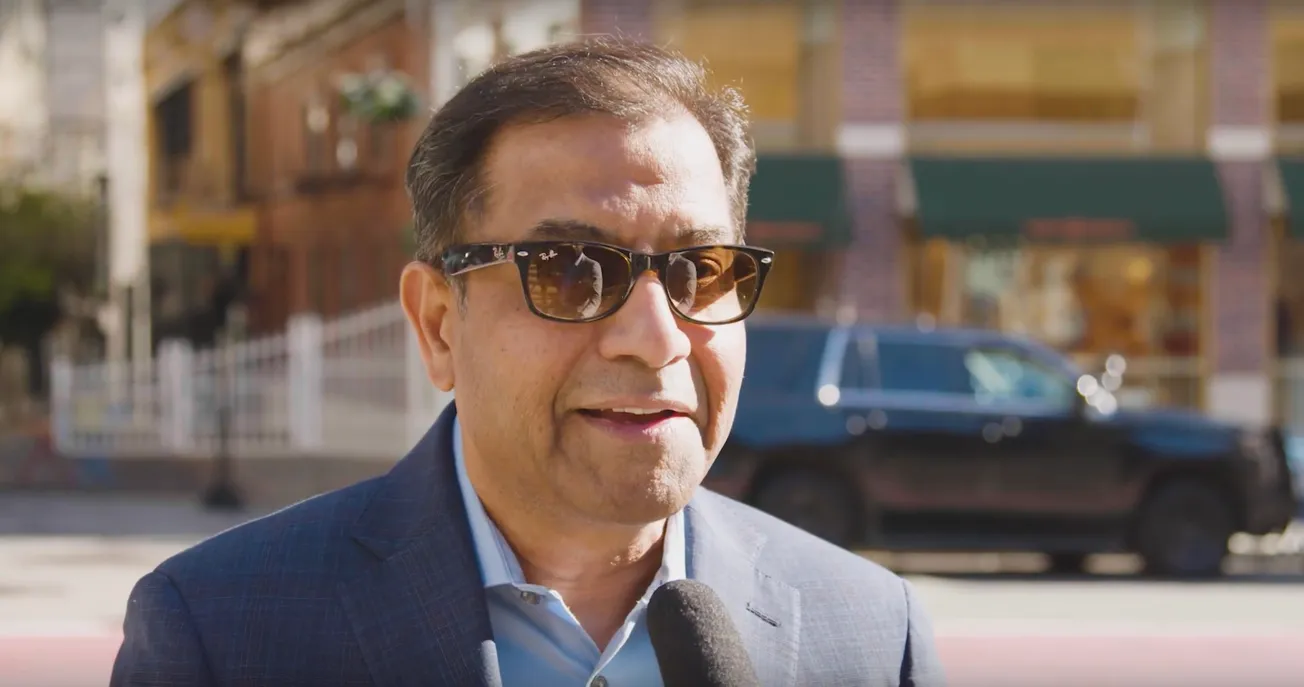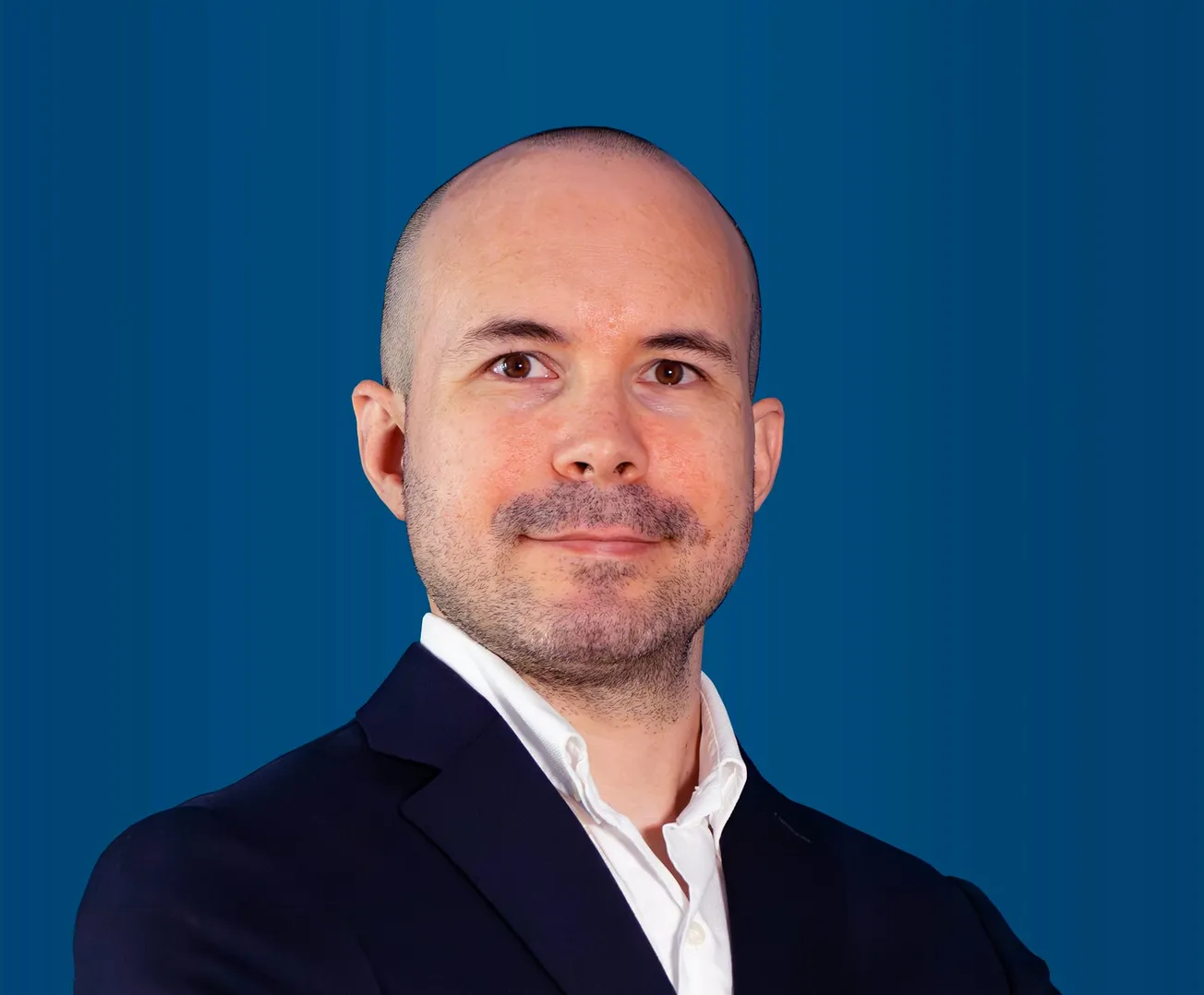Table of Contents
Martin Tolar, CEO of Alzheon, sat down with Onyx for a feature-length interview.
What led you to be the founder-CEO of Alzheon?
I was born and raised in Prague, back when it was still Czechoslovakia. My first university education was in computer science, but I later went to medical school because I have always been fascinated by philosophy and function of the brain - trying to understand who we are. I have founded and run companies in both IT and biotech, focusing on how the brain works and helping patients with neurological disorders.
I came to the U.S. for graduate school and initially worked in Eric Kandel’s group, who won the Nobel Prize for understanding of the biological basis of learning and memory. My PhD thesis focused on the role of apolipoprotein E4 (APOE4), a major risk factor for Alzheimer's disease.
After training in neurology in Boston and spending some time on the faculty at Yale, I became frustrated with the lack of treatments for neurological disorders. So, I joined Pfizer, where I led several clinical programs and then ran the business development group - they even sent me to business school. Later, I moved into biotech, and at my first company CoMentis, we did a billion-dollar deal with Astellas Pharma. Having lived through communist Czechoslovakia, I really value the entrepreneurial spirit as well as scientific and business opportunities in the US.
When I founded Alzheon over 11 years ago, nobody wanted to touch Alzheimer's drug development—everything had been failing for decades and the science seemed impossible to solve. But we were successful at Alzheon in addressing the key hurdles and have built a new approach, focusing on the high-risk patients with APOE4 genotype and finding drugs that showed efficacy. We have been building our program and platform for over a decade, which helped us develop a treatment which is not only well differentiated, but also one which has unveiled answers to a lot of key scientific questions regarding how Alzheimer's disease develops. We have published 13 papers discovering the toxin that causes Alzheimer's, how to diagnose patients accurately, how to use imaging and fluid biomarkers of neurodegeneration, and elucidated the role of the APOE4 gene.
Can you give us an update on your lead asset, ALZ-801?
We have built a product platform focusing on Alzheimer's disease. We discovered that neurodegeneration is caused by proteins that get trapped in the brain and tend to aggregate into small aggregates called oligomers, which behave like prions. We have been working with Dr. Stanley Prusiner, who was awarded the Nobel Prize for his discovery of prions, neurotoxic proteinaceous particles that cause neurodegenerative disorders.
Our platform involves small molecules that stabilize proteins and increase their clearance from the brain. Our drug prevents formation of toxic amyloid aggregates and allows them to be cleared from the brain. ALZ-801 is our lead compound, an oral drug that has recently completed its pivotal Phase 3 trial.
We are in discussions with the FDA and other regulatory bodies and have lots of interest from large Pharmas. We also have backup compounds that could be differentiated from current treatments. Additionally, our platform could potentially be used against other neurodegenerative disorders like Parkinson's and ALS.
How does ALZ-801 compare to other therapeutics on the market?
The currently approved antibody treatments, like lecanemab from Eisai and donanemab from Eli Lilly, need to be infused, which is costly and requires substantial infrastructure. They also may cause serious side effects like brain edema and hemorrhage, especially in patients with two copies of the APOE4 gene, which is our initial focus.
In contrast, ALZ-801 is an oral drug with a favorable safety profile. It has the potential to be used early in the course of disease and pre-symptomatically, before patients have significant brain damage. Our goal is to provide safe and effective, oral, widely accessible treatment for millions of patients worldwide. The cost of Alzheimer's is already estimated to be a trillion dollars globally, and that cost will only increase as the global populations live longer.
What's the timeline with the FDA moving forward?
We are finalizing our data package and working closely with the FDA on submissions. Our aim is to bring our drug to patients who currently have no other viable options, particularly APOE4/4 homozygous patients, who develop the disease about a decade earlier - in their early sixties rather than seventies or eighties - and have a more aggressive course. The FDA has issued a boxed warning for the antibodies in these patients - so, essentially, these patients have no disease modifying treatment available. Pending approval, we hope to get ALZ-801 to patients as quickly as possible.
We have an effective commercial group and are building our presence. We continue to see lots of partnering interest because, after the success of obesity treatments by Eli Lilly and Novo Nordisk, Alzheimer's is the next big challenge and Pharma value driver. Partnering with Pharma may make sense because they have the infrastructure and experience to commercialize a drug globally.
You have mentioned the U.S. and Europe. What about international expansion?
We conducted our Phase 3 study in the U.S., Canada, and Europe. We have significant interest from Japanese partners, and not surprisingly, the biggest need is in China. It is striking that perhaps half of the Alzheimer's population is in China. What most people don’t know about Alzheimer’s is that the disease process starts decades before symptoms appear, so an early intervention is crucial.
Looking ahead to JPM Week, what key trends do you think will be important in the coming months?
One significant trend is that Pharma companies are increasingly turning to biotechnology companies for innovation. There is an enormous product gap, and Pharma companies need new products. Smaller, nimble biotech companies like ours can focus on a single scientific problem and make breakthroughs that larger organizations might not. Neuroscience has come of age, and we are seeing large deals being made in disorders such as migraine, chronic schizophrenia, and depression. This is putting the industry on notice that significant advancements are happening in neurosciences.
Speaking of innovation, AI is a hot topic. Is that a consideration for you?
Absolutely. My background is in computer science, and I have founded a few companies in AI. One of them is Tolion Health, which is focused on applying AI to develop personalized, predictive and preventive medicine with lifestyle recommendations for improving and maintaining brain health. The idea is that lots of medical knowledge isn't readily accessible to practitioners or patients and a personal health coach can have a tremendous impact on health, quality of life and longevity. AI can help process vast amounts of data to provide personalized health insights based on genetics, family history, and medical status.
In drug development, AI can assist in understanding protein structures, predicting outcomes, and repositioning existing drugs. We saw recently that a Nobel Prize was awarded for work in AI that helps understand protein folding, which is invaluable in our field.
Talking about prevention, could you share a bit about how you personally keep fit?
Exercise is incredibly important—"use it or lose it," as they say, which applies to our bodies as well as our brain. Physical activity is not only good for your body but also for your brain, in addition to keeping our creative minds active. It has been shown that higher levels of fitness correlate with better health and longevity. Diet is also crucial: eat real food, not too much, mostly plants. The Western diet isn't ideal, so focusing on whole foods is important. Sleep is essential, especially for brain health, as that's when all the toxins are cleared out. All of these factors and interventions will be personalized by the Tolion Health app we are developing.
In addition, I like going to the sauna, especially after a run, and then jumping into a cold pool. That's when the name "Alzheon" came to me.
Another important factor is social connections. Studies on "blue zones," areas where people live longer and healthier lives, show that strong social networks are the most impactful factor. It is not just about family but also maintaining links with friends and community. Technology can detract from human interaction, but maintaining social bonds is vital for health and happiness. We need to remember that while technological advances are incredible, we are still biologically the same as we were a hundred thousand years ago.





